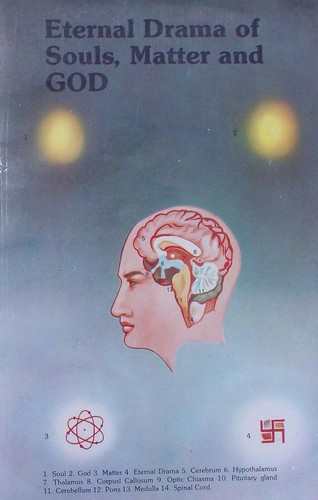
"Caste, sactioned by the [Bhagavad] Gita with almost propagandist fervour, might be seen as part of the older Indian pragmatism, the 'life' of classical India. It has decayed and ossified with the society, and its corollary, function, has become all: the sweeper's inefficiency and the merchant's short-sighted ruthlessness are inevitable. It is not easy to get candidates for a recently instituted award for brave children. Children do not wish their parents to know that they have risked their lives to save others. It isn't that Indians are especially cowardly or have no admiration for courage. It is that bravery, the willingness to risk one's life, is the function of the soldier and no one else. Indians have been known to go on picnicking on a river bank while a stranger drowned. Every man is an island; each man to his function, his private contract with God. This is the realization of the Gita's selfless action. This is caste. In the beginning a no doubt useful division of labour in a rural society, it has now divorced function from social obligation, position from duties. It is inefficient and destructive; it has created a psychology which will frustrate all improving plans. It has led to the Indian passion for speech-making, for gestures and for symbolic action.
"Symbolic action: tree-planting week (seventy per cent of the trees planted die from lack of attention after the speeches), smallpox eradication week (one central minister is reported to have refused to be vaccinated for religious reasons, and vaccination certificates can be bought for a few shillings from various medical men), anti-fly week (declared in one state before the flies came), children's day (a correct speech by Mr Nehru about children on the front page of the newspaper and on the back page a report that free milk intended for poor chilren had found its way to the Calcutta open market), malaria eradication week (HELP ERADICATE MALARIA daubed, in English, on the walls of illiterate Hindi-speaking villages)."
"Symbolic action: tree-planting week (seventy per cent of the trees planted die from lack of attention after the speeches), smallpox eradication week (one central minister is reported to have refused to be vaccinated for religious reasons, and vaccination certificates can be bought for a few shillings from various medical men), anti-fly week (declared in one state before the flies came), children's day (a correct speech by Mr Nehru about children on the front page of the newspaper and on the back page a report that free milk intended for poor chilren had found its way to the Calcutta open market), malaria eradication week (HELP ERADICATE MALARIA daubed, in English, on the walls of illiterate Hindi-speaking villages)."
-p. 79-80, An Area of Darkness, V.S.Naipaul
I joked with John when we first arrived in Delhi that this was the futures. It reminded me of the set of Children of Men. Narrow cars, motorcycles, bicycles, speeding en masse through the streets. Hordes of people everywhere. Gutters filling up with plastic waste because there is no where else to put it. Cement buildings rising up into smog. Rushing, rushing, going nowhere, salesmen in your face, billboards in three languages--
But India is also the past. When walking a few days ago, I saw a small boy, naked, shitting in a river just before it joined the Ganges. Right on a rock, in plain sight. Water will wash the excrement away. Downstream in Haridwar, nightly, pilgrims drink this water by the cupful, water from the Mother Ganges, water that is clean because they cannot imagine it dirty. Because it is sacred. They see the small boy shitting. They see grown men and women shitting straight into the water every day. Still they bathe in its water (Hinduism requires a daily bath), they wash their laundry in it, they drink it, they protest that it is clean.